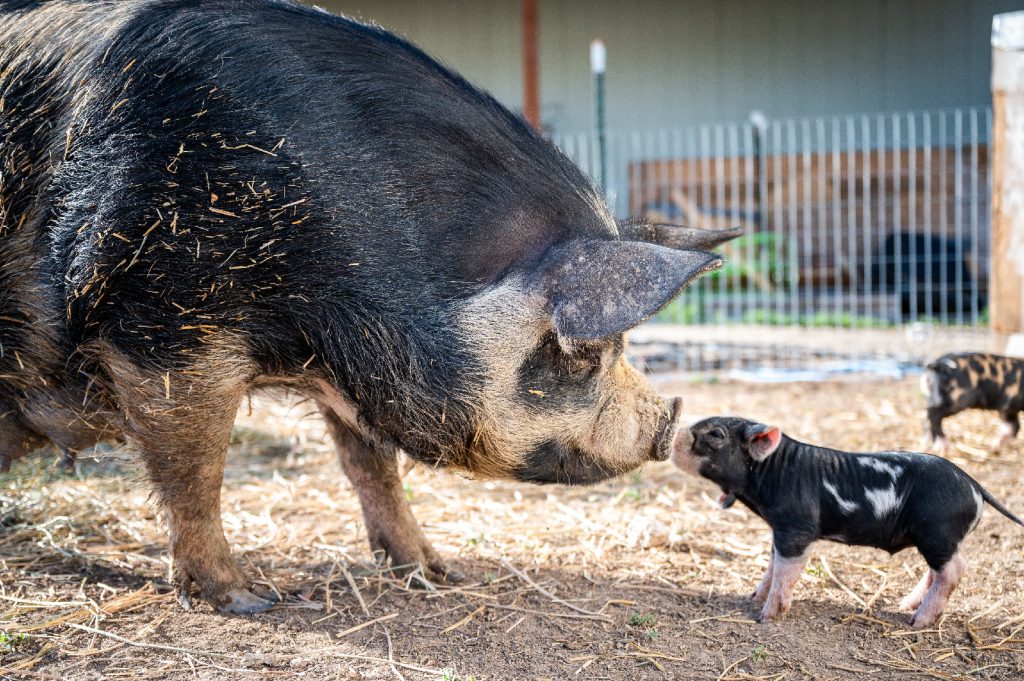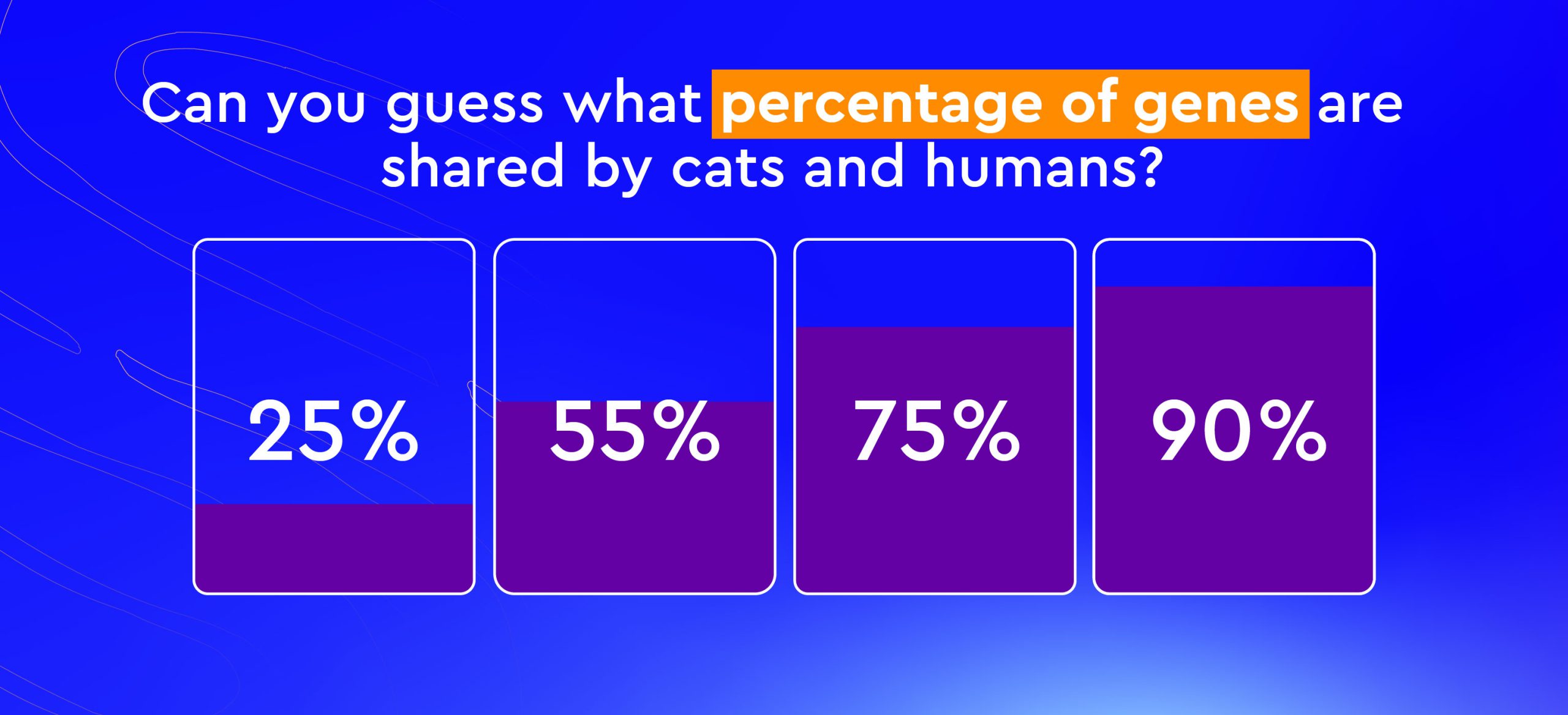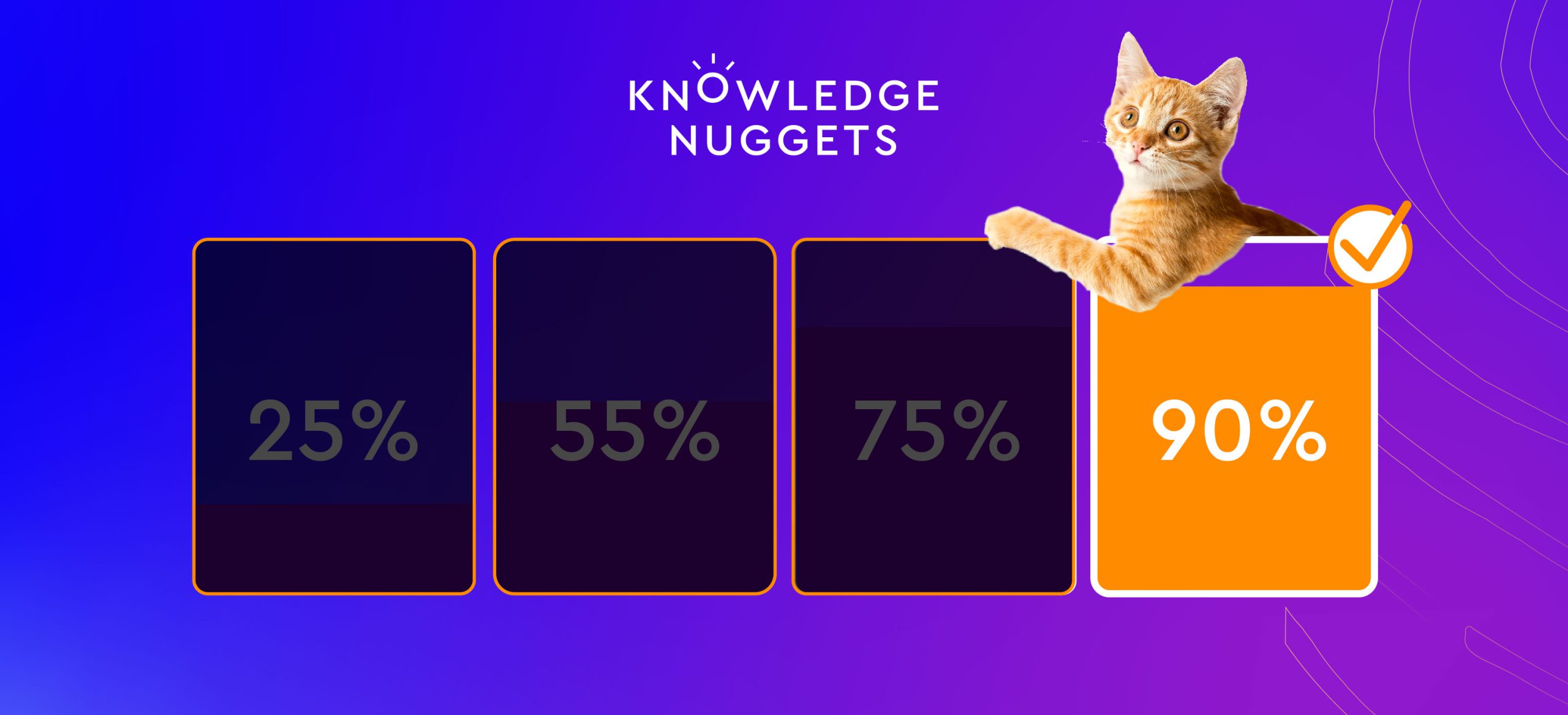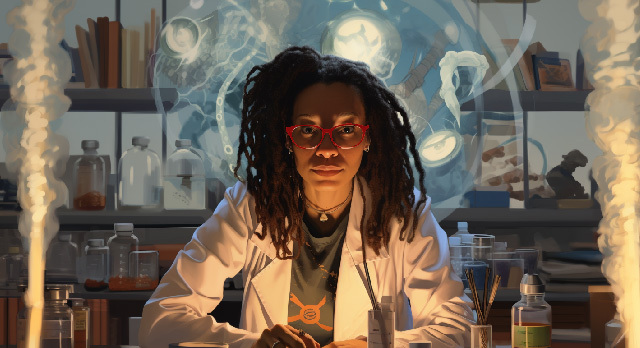

How Much of a Cat Are You?
How Much of a Cat Are You?
Humans share so much of their DNA with other animals that scientists can now create human-animal hybrids
A 2007 study revealed that 90% of human and cat genes are homologous, meaning that they were inherited from a common ancestor. So not only do many of us hold cats close to our hearts, but we’re closely related too.
Of course, cats aren’t our closest relatives. Humans share almost 99% of our DNA with chimpanzees, and even 98% with pigs. These similarities enable us to understand genetic disorders and find ways to treat them, and to even go as far as creating human-animal hybrids.

Scientists have successfully created pig embryos containing human DNA. Their aim is to grow human organs inside pigs, thus providing new organs to those in need. But this DNA editing raises some concerns. Although PEW research shows that most Americans accept genetically engineering animals to benefit human health, there is moral uncertainty in farming human-pig chimeras for their organs, and in genome editing of animals in general. Think about it: if an animal is part pig and part human, what moral standards should we apply when treating it?
The moral uncertainties about DNA editing don’t end in human-animal hybrids. With new technologies such as CRISPR, scientists are now able to cut, copy, paste, delete, and replace whole sequences of DNA in our bodies, thus hoping to eradicate genetic diseases and make changes in problematic physical traits. The widening economic gaps could mean that wealthy individuals will be able to make themselves taller, stronger, more beautiful and less prone to bodily decay. DNA editing could well be a major factor in creating a superhuman caste.
Group Activity
-
- Divide the group into several teams.
- Pick one of the questions from the list below and let each team discuss it and then present their thoughts to the group; Alternatively, assign each team with a different question, and when they present it to the group ask the remaining teams for their thoughts as well.
Questions
- Cats have been keeping us company for around 10,000 years. Why do you think humans love cats so much?
- Does it have anything to do with genetic similarity? Think of Chimpanzees; they share 99% percent of our DNA and yet are not very popular pets.
- Genetic similarity between humans and certain animals is what enables animal testing of drugs in labs. If so, why not test new drugs on humans themselves?
To delve deeper, give each team an article from the list below (you can assign all of the articles or choose between them). Ask each team to summarize the article’s main argument(s) and present it to the group. Things to note and address: where was the article published (a magazine? A news website? An academic journal?) Who is the author (a columnist? An academic?). Each team can also turn the article’s core argument into a slogan (“AI deletes the I”, “The solution is evolution”, etc.). Ask each team to present their thoughts on the question to the group.- Article 1: Opinion: Time to rethink how we use animals to test pharmaceuticals. Washington Post, October 2021
- Article 2: Why Animal Research? Stanford Medicine
- Article 3: Save the Animals: Stop Animal Testing. Lone Star College
- Should we create human-animal “chimeras” for the benefit of human health?
- Do you support DNA editing in humans for the purpose of creating babies which are immune to certain diseases? How about editing DNA for aesthetic purpose?
To delve deeper, give each team an article from the list below (you can assign all of the articles or choose between them). Ask each team to summarize the article’s main argument(s) and present it to the group. Things to note and address: where was the article published (a magazine? A news website? An academic journal?) Who is the author (a columnist? An academic?). Each team can also turn the article’s core argument into a slogan (“AI deletes the I”, “The solution is evolution”, etc.). Ask each team to present their thoughts on the question to the group.- Article 1: Opinion: Don’t Ban the Use of CRISPR in Embryos. The Scientist, November 2018
- Article 2: ‘CRISPR babies’ are still too risky, says influential panel. Nature, September 2020
- Article 3: Opinion: Should we use gene editing to produce disease-free babies? A scientist who helped discover CRISPR weighs in. Ted, August 2017






